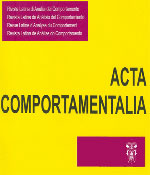Freedom of Will and involuntary action
Main Article Content
Abstract
In this paper, the classical way in which the problem of freedom and determinism has been treated is qualified as a muddle that can be clarified only through analytical philosophy. The muddle arises mainly from treating the problem within the frame of mind/body dualism, a certain view of causality, natural regularities, and scientific explanations, and a distorted use of psychological language. A differen analysis is proposed in which the problem of freedom is explicitly characterized as a problem that concerns human action, instead of a metaphysical problem of universal causation (much less of the nature of the mental and its relation to the bodily). Every discussion on whether or not we are free must seek an understanding of the actions of people, in order to determine who is responsible, why, to what extent, etc. We thus should not start by asking ¿are we free?, but rather ¿what actions or classes of actions can we say are frre or voluntary?
Article Details
Citas en Dimensions Service

<a rel="license" href="http://creativecommons.org/licenses/by-nc-sa/4.0/"><img alt="Licencia de Creative Commons" style="border-width:0" src="https://i.creativecommons.org/l/by-nc-sa/4.0/88x31.png" /></a><br />Este obra está bajo una <a rel="license" href="http://creativecommons.org/licenses/by-nc-sa/4.0/">licencia de Creative Commons Reconocimiento-NoComercial-CompartirIgual 4.0 Internacional</a>.
